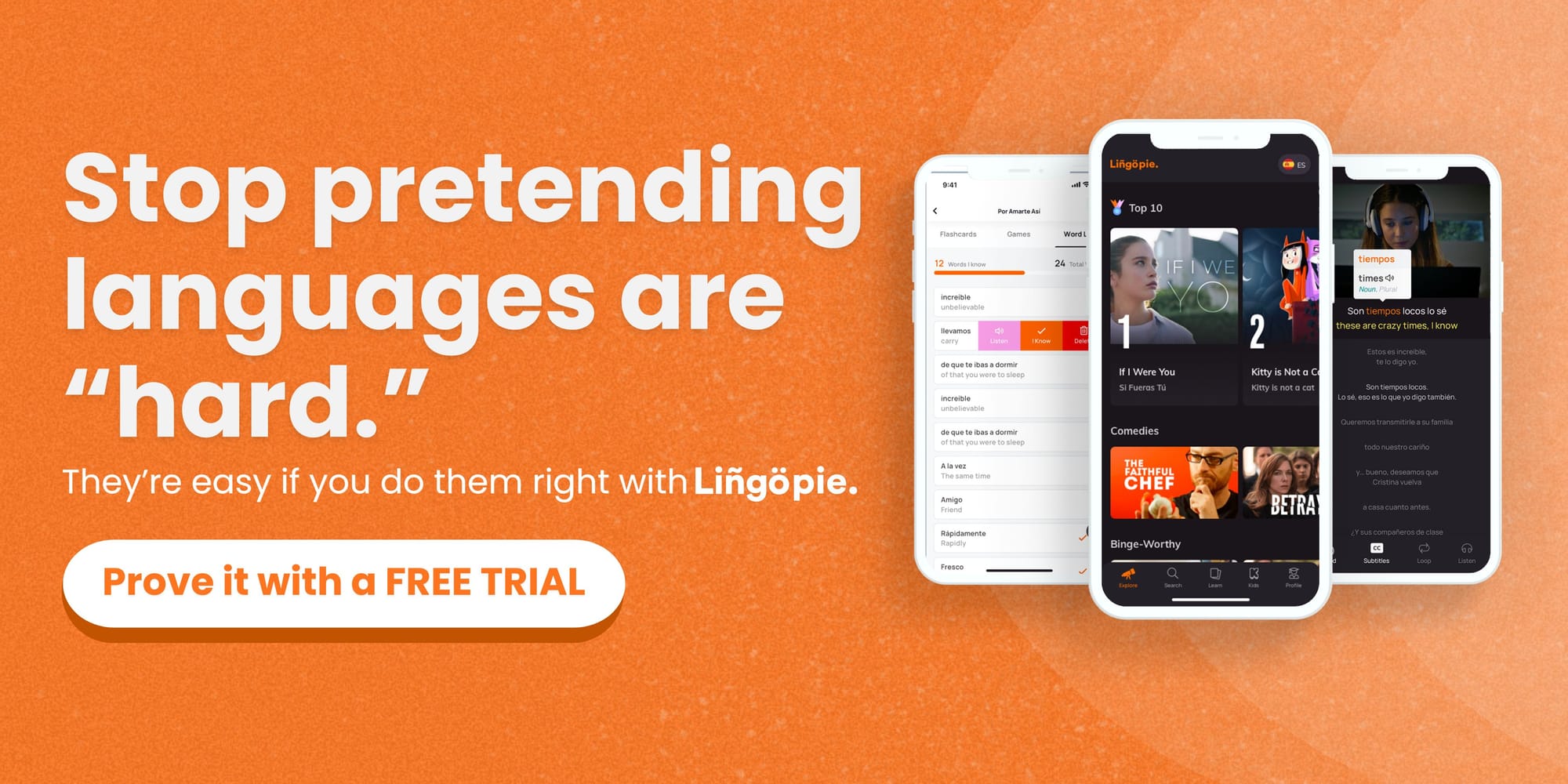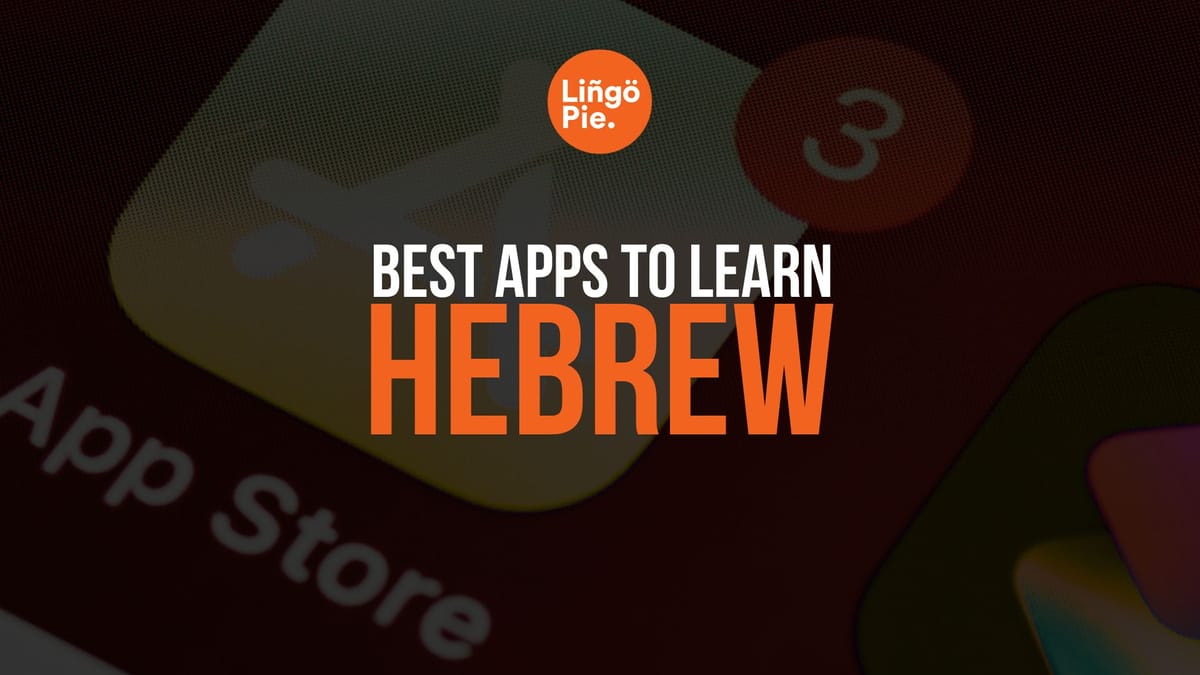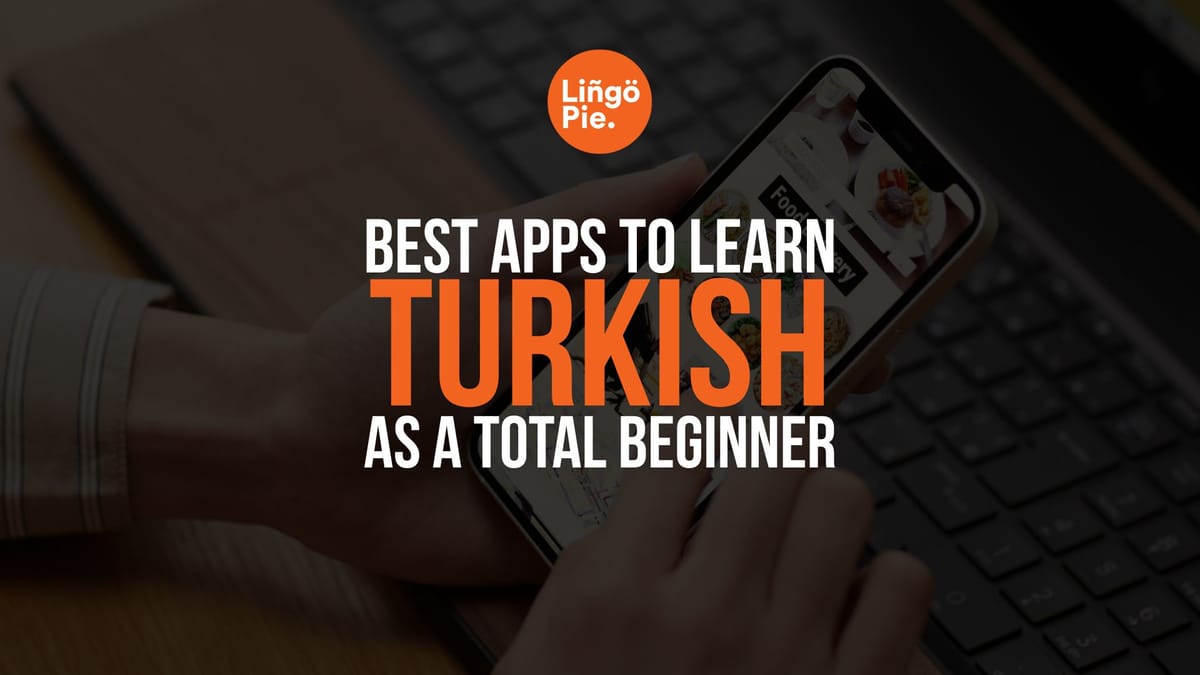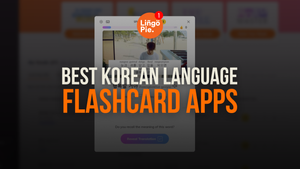I’ve tested way too many Hebrew learning apps over the past few months, and honestly? Most of them are pretty disappointing. You’ll find hundreds in the app store, all claiming they’ll have you speaking Hebrew fluently in weeks. The reality is that most rely on basic flashcards and word lists that teach Hebrew completely out of context.
In this post, I’ll share the Hebrew learning apps that actually impressed me and explain who each one works best for. I’ll also give you my honest take on whether apps alone can get you fluent in Hebrew or if you need something more.
- 18 Hebrew Slang Words And Phrases To Use Today
- 50 Basic Hebrew Phrases For Travelers
- Is Hebrew Hard To Learn? An Honest Review + Tips

Criteria For Evaluating The Best Apps To Learn Hebrew
Not all Hebrew learning apps are created equal, and I've learned this the hard way after downloading what feels like every single one available. Hebrew presents unique challenges that many generic language apps simply aren't equipped to handle.
For instance, the Hebrew alphabet reads right to left, verbs change dramatically based on who's doing the action, and pronunciation involves sounds that don't exist in English. Technically, an app that works great for Spanish or French might completely fall flat when it comes to Hebrew’s specific demands.
To make this review unbiased, here are the things I checked for each:
- Hebrew Script Support: Does the app teach you to read Hebrew letters from day one, or does it rely on transliterations?
- Grammar Integration: Good apps weave grammar naturally into lessons rather than treating it as separate vocabulary drills.
- Audio Quality and Pronunciation: Hebrew has sounds that don't exist in English. The app needs clear native speaker audio and pronunciation feedback to help you distinguish between similar sounds.
- Contextual Learning: Instead of isolated word lists, effective apps present vocabulary within sentences and real situations.
- Cultural Context: Hebrew is deeply connected to Israeli culture and Jewish traditions. Apps that include cultural explanations help you understand not just what to say, but when and why to say it.
Best Hebrew Language Learning Apps
Lingopie - Best Hebrew Learning App For Immersion

Lingopie lets you learn Hebrew by watching Israeli TV shows and movies with clickable subtitles that instantly translate any word. This Hebrew learning app wins at Contextual Learning because you'll be exposed to real conversations between Israelis, not scripted dialogues designed for language learners.
When a character gets angry, you learn how Israelis express frustration. When they joke around, you pick up humor and sarcasm that textbooks miss. You can rewind and replay scenes when someone speaks too fast or uses unfamiliar slang.
This Hebrew language learning app also solves the biggest problem most learners face: understanding native speakers in natural settings. You’ll recognize phrases from the shows when you hear them in real life, making this the best app for learning Hebrew if you want to move beyond basic tourist phrases.
| Pros | Cons |
|---|---|
| Learn through authentic Israeli entertainment | Requires subscription for full access |
| Exposure to real accents and cultural context | Better for intermediate learners |
| Interactive subtitles make vocabulary easy | Content library could be larger |
| Combines entertainment with learning | Needs some basic Hebrew foundation |
| Natural immersion experience | Limited structured grammar lessons |
Preply - Best App For One-On-One Tutoring

Preply connects Hebrew learners with native and professional Hebrew teachers for personalized video chat lessons. It excels in Cultural Context and Audio Quality and Pronunciation because you learn directly from native speakers who explain what Hebrew words mean and when to use them in Israeli situations.
This human connection matters for Hebrew because the language connects to cultural nuances, religious traditions, and modern Israeli slang that apps miss. A live tutor provides instant pronunciation correction, real-time grammar explanations, and actual conversation practice instead of repeating phrases into your phone.
| Pros | Cons |
|---|---|
| One-on-one lessons with native Hebrew speakers | Can be expensive with regular sessions |
| Personalized curriculum for your specific goals | Quality varies between different tutors |
| Instant feedback on pronunciation and grammar | Requires scheduling and time commitment |
| Cultural insights from Israeli teachers | Better for intermediate to advanced learners |
| Flexible scheduling around your availability | Need to find the right tutor match |
Write It! Hebrew - Best Language App For Hebrew Script

Write It! Hebrew is a specialized app that focuses on Hebrew handwriting through interactive stroke-by-stroke practice and handwriting recognition technology. This app excels in Hebrew Script Support by teaching proper letter formation and stroke order rather than just letter recognition.
This matters for Hebrew learners because Hebrew cursive looks completely different from print letters, and most Israelis write in cursive daily. The app's handwriting recognition technology helps you build correct muscle memory from the start, which prevents developing bad writing habits that are difficult to fix later.
| Pros | Cons |
|---|---|
| Teaches proper Hebrew letter formation | Only focuses on writing skills |
| Handwriting recognition technology | No speaking or listening practice |
| Perfect for learning Hebrew script | Limited vocabulary building |
| Short focused practice sessions | Can become repetitive quickly |
| Builds muscle memory for writing | Doesn't teach grammar or conversation |
Gus On The Go - Best Hebrew App For Kids
Gus On The Go is a game-based Hebrew learning app for children ages 2 to 7. Here, you'll be guided by an animated bird character through basic Hebrew vocabulary using colorful games and activities. The app also excels in Audio Quality and Pronunciation because it uses native Hebrew speakers and focuses on listening and repeating, which matches how young children naturally learn language.
The app works well for Hebrew because kids can learn the unique sounds without worrying about reading Hebrew letters or grammar rules. Lessons also tend to stay short and playful, covering essential vocabulary like colors, numbers, and animals that children use daily.
| Pros | Cons |
|---|---|
| Perfect for young children learning Hebrew | Limited to very basic vocabulary |
| Colorful animations keep kids engaged | No advanced grammar or conversation |
| Native speaker pronunciation for kids | Better for ages 2-7 only |
| Safe environment with no ads | Content becomes too simple quickly |
| Short game-based learning sessions | Lacks cultural context for older learners |
HebrewPod101 - Best Hebrew App For Podcast-Style Content

HebrewPod101 teaches Hebrew through podcast-style lessons that explain Israeli culture alongside language. In fact, every lesson includes explanations about Israeli society, Jewish holidays, and cultural practices that give meaning to the language. This cultural foundation prevents the common mistake of learning Hebrew words without understanding when and how to use them in real conversations.
| Pros | Cons |
|---|---|
| Rich cultural context in every lesson | Requires subscription for full access |
| Podcast format perfect for commuting | Can feel overwhelming for beginners |
| Native speaker audio with clear explanations | Less interactive than app-based learning |
| Covers beginner to intermediate levels | Limited speaking practice opportunities |
| Flexible learning at your own pace | Content library navigation can be confusing |
How Long Does It Actually Take to Learn Hebrew?
According to the US Foreign Service Institute, learning Hebrew typically takes about 44 weeks or 1,100 hours to reach professional proficiency. That said, most people see progress much faster than that timeline suggests.
Here's what you can realistically expect:
- Basic conversations (3-6 months) - You'll master the alphabet, pick up essential vocabulary, and form simple sentences with 3-4 hours of daily study
- Intermediate level (6-12 months) - Your vocabulary expands significantly and you start tackling Hebrew grammar
- Advanced fluency (1-2+ years) - You can handle complex conversations and texts with confidence
However, several factors affect how quickly you progress. If you already know Arabic or another Semitic language, you’ll have a significant head start. Your native language background, study methods, and daily time commitment also matter.
Generally speaking, immersion experiences, structured classes, and one-on-one tutoring speed things up compared to studying alone. The real key is staying consistent and mixing up your learning methods.
Can You Learn Hebrew Through Apps?
The most successful Hebrew learners use apps as one tool among many. Apps work great for daily vocabulary practice, learning the alphabet, and getting familiar with basic sentence structures. However, you’ll likely need additional resources like conversation practice with native speakers, cultural immersion through Israeli media, or structured grammar lessons to reach true fluency.
This is exactly why Lingopie is highly recommended for Hebrew learners. By watching the same popular Israeli TV shows and movies with interactive dual subtitles, you're exposed to how Hebrew actually sounds in natural conversations, complete with slang, emotions, and cultural references.
Ready To Learn Hebrew?
Hebrew will frustrate you. The verb conjugations will make your head spin, and you'll probably butcher the pronunciation for months. Eventually though, you'll understand Hebrew songs without translations, follow Israeli news, and actually get the cultural jokes that make Hebrew speakers laugh.
The solution? Use Lingopie! Click below to unlock a FREE 7-day trial to test it out!









![7 Best Apps To Learn German On Your Own [REVIEWED]](/blog/content/images/size/w300/2026/01/best-apps-to-learn-german-on-your-own.png)